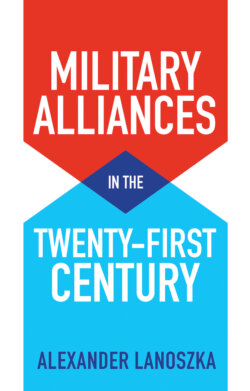Читать книгу Military Alliances in the Twenty-First Century - Alexander Lanoszka - Страница 10
Conventional wisdom #1: States form alliances to balance power and/or to gain influence over other states
ОглавлениеMany observers agree that states form military alliances in order to aggregate power in the face of a security challenge or to gain influence over another. Sometimes both motives are operative. There is much to be said for this canonical understanding of alliance formation: it is intuitive and easy to grasp.
Still, as shown in Chapter 1, although balancing power and influence-seeking can drive particular instances of alliance formation, these explanations are at best insufficient and may not even identify conditions necessary for states to agree to a military alliance. They indeed tend to overpredict how many alliances actually form. Most importantly, it is unclear why having a written alliance by way of a treaty is at all necessary for balancing power against adversaries or for projecting influence over would-be allies.
Writing down an alliance commitment accomplishes two strategic but seemingly contradictory tasks. One is that it allows signatories to communicate to international and domestic audiences that they have a serious stake in addressing a particular security challenge. Another is that it permits the signatories to leave purposely vague the conditions under which a treaty obligation would become operational, keeping both allies and adversaries in the dark as to what exactly would trigger a major defensive response. This vagueness is important in part because treaty allies have similar but not identical interests. Differences, just as much as commonalities, drive the need for written commitments. Treaties enable states to thread the needle more effectively between certifying a commitment for augmenting deterrence and allowing for enough ambiguity to keep allies and adversaries alike off balance. This in turn can lead the way for even more military cooperation because states become more comfortable about investing in their security relationship. Nevertheless, some alignments between states never rise to the level of a written commitment because their differences outweigh those commonalities too much.
